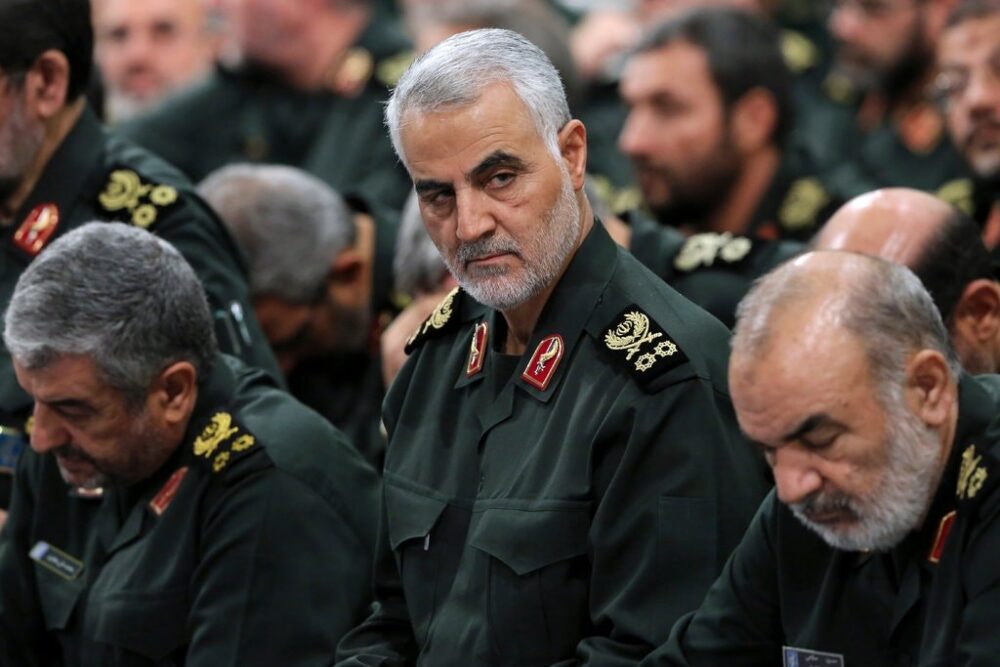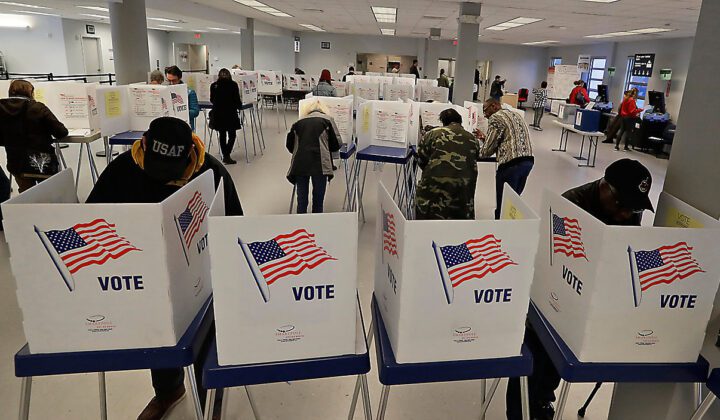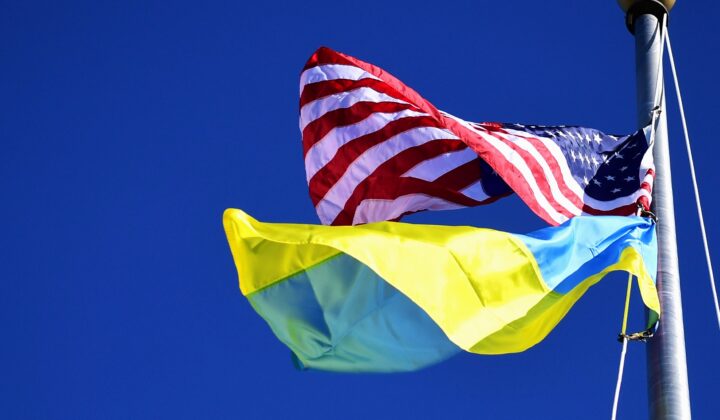Death of a General
On Thursday, President Trump exercised one of the most important decisions one can make – the decision to kill in the name of the United States. Iranian Major General Qassim Suleimani was killed by a drone strike in Iraq. As commander of the irregular warfare-Quds Force of Iran’s Islamic Revolutionary Guard, Suleimani was responsible for the deaths of hundreds of U.S. and coalition soldiers during the war in Iraq, when Quds Force trained and supplied insurgents fighting against U.S. and coalition forces. The event, means, timing, and justification for his death raise profound questions for American democracy. Once more, the President and Congress are tussling in that contested space of who holds the authority to commit acts of violence in defense of the nation – and when.
- What effect has the strike had on Capitol Hill? Republicans and Democrats were united in condemning General Suleimani as an enemy of the United States. Where they diverged, however, was the wisdom of the operation and the consequences it might bring.
- The Republican view: “His death presents an opportunity for Iraq to determine its own future free from Iranian control,” said Senator Jim Risch of Idaho, the chairman of the Foreign Relations Committee. “As I have previously warned the Iranian government, they should not mistake our reasonable restraint in response to their previous attacks as weakness.”
- And for the Democrats: “Qassim Suleimani is an evil man. He has absolutely ordered the murder of hundreds of Americans,” said Senator Chris Murphy of Connecticut. “But he is a high-level representative of a foreign government, a foreign government with a military that could strike at American civilians and American service people… We do not generally execute high-level political figures of sovereign nations, in part because we know that that opens a Pandora’s box that may expose American officials to assassination, but also because we know that ultimately that might get more Americans killed, as it likely will in this.”
- How does the strike influence the relationship between the President and Congress? The strike once again exposes the tension in the checks and balances between Congress and the President in deciding when to use military force.
- What are the rules? The War Powers Act requires the President to notify Congress within 48 hours of introducing American forces into armed conflict or a situation that could lead to war. The Presidency did send a notification to Congress after the strike. However, the content of that notification was entirely classified, leading Democratic members of Congress to argue that the notification was insufficient.
- What is the practice? Presidents typically inform the “Gang of Eight” — the House speaker and minority leader, the Senate majority and minority leaders, and the chairmen and ranking members of the House and Senate intelligence committees — on high-level military operations in advance of their being carried out. Top Democratic leaders in Congress claim to have received no advance notification of the strike.
- But doesn’t the Constitution clearly say that only Congress has the power to declare war? Yes it does – see Article One, Section Eight. However, the definition of “war” is contested. For many years the Presidency has asserted that it has the unilateral power to conduct lethal military operations that fall short of war. Congress has done little to stop this increase in executive power, and presidents of both parties have seized on it. As Harvard Professor Jack Goldsmith writes: “Both parties in Congress have gone along with this expansion of presidential war power, especially with regard to the complex Middle East wars… In short, our country has—through presidential aggrandizement accompanied by congressional authorization, delegation, and acquiescence—given one person, the president, a sprawling military and enormous discretion to use it in ways that can easily lead to a massive war. That is our system: One person decides.”
- Was the strike legal? It depends on the facts – and those have not yet been fully disclosed to the public. They might never be. There are many reasonable, complex arguments both ways. It is likely, however, that the legality turns on the answer to this question: was there an imminent threat of attack by General Suleimani against the United States?
- If so, then the strike may have been lawful. Article II of the Constitution has been interpreted to empower the President to respond to imminent threats to the nation, without consulting Congress. Moreover, the United Nations Charter and international law generally permits such use of force in anticipatory self-defense.
- If not, if there was no such imminent threat of attack, then a legal basis for the strike is hard to find.

The Fugitive: Ghosn Gone
He’s on the run. Carlos Ghosn (pronounced Go-n – you’re welcome), former chairman and CEO of the Renault-Nissan-Mitsubishi Alliance, the largest automotive group in the world, has a reputation for rescuing companies in dire straits, saving both Renault and Nissan from near-certain financial collapse. He now has a reputation for rescuing himself. Arrested in late 2018 by Japanese authorities on charges of misreporting his compensation and misusing company resources, Ghosn had posted a staggering $13.8 million bail. He was placed under house arrest in Tokyo. He thought his acquittal unlikely: Japan’s criminal justice system has a 99% conviction rate. Not liking the odds, he skipped town, hopped on one private jet and then another, before touching down in his native Lebanon. At his first press conference, on Wednesday, he alleged there was collusion between Nissan and Japanese prosecutors, saying “I did not escape justice. I fled injustice.”
- But can’t he be handed back to Japan? The law is a creature of procedure. Extradition is the process whereby one jurisdiction delivers a person accused or convicted of committing a crime in another jurisdiction, over to the law enforcement of that other jurisdiction. It is usually regulated by treaty. Except, Lebanon and Japan do not have an extradition treaty with each other. Although Interpol has requested his surrender, that does not have the status of an arrest warrant, leaving Lebanon to decide what it wishes to do with Ghosn under its own laws – which he is not accused of having broken. Accountability will have to wait – but perhaps not indefinitely. Ghosn is also a citizen of France, the finance minister of which said “When one is a defendant, one does not escape justice. And Carlos Ghosn is a defendant like any other.” Moreover, Japanese authorities have now issued a warrant for the arrest of Ghosn’s wife, Carole, on the basis that she previously gave false testimony. She is a citizen of the United States – and the United States and Japan do have an extradition treaty with each other.
- Wait – Japan has a 99% conviction rate? Yes, and 89% of those convictions are brought about by confession – usually obtained during interrogations held over the 23 day detention periods that suspects may be subjected to, and during which time suspects have little access to lawyers. Virtually no appeals succeed. Those are standards of due process that fall short of American standards of a fair trial. Another reason for the high conviction rate is that prosecutorial services in Japan are grossly underfunded, seemingly leading to only the most open-and-shut cases, bearing overwhelming evidence of guilt, being brought to court. But, Ghosn’s decision to take matters into his own hands makes it probable that the fairness of Japan’s criminal justice system won’t be tested.
- He was under house arrest – how did he escape? By wielding his checkbook. After walking past the security cameras that monitored his house in Tokyo, an American security consultant – a former Green Beret – hustled him aboard a private jet in Osaka – almost 300 miles from Tokyo. The cargo manifest of the jet was falsified to mask his presence, which then took off and flew to Turkey. In Istanbul he boarded another private airplane and jetted into Beirut. Turkish authorities have arrested numerous flight personnel connected with the escape.
___
Democracy at Work

California Dreamin’
Let’s hear it for civic participation! The bankruptcy and technical struggles of northern California’s principal utility provider, Pacific Gas and Western, are well chronicled. Late last year it shut off power to northwestern California for an extended period. But not everyone was left in the dark. The Blue Lake Rancheria tribe husbanded and used its resources to construct a microgrid on its reservation, keeping the lights on – and allowing critically ill patients from power-deprived areas to be taken in and cared for.
- A microgrid? Micro grids are independent electricity networks that function separately from a national grid. Instead of one large plant providing power for an entire region, these small-capacity plants have the capacity to provide energy for their local communities. Microgrids are connected to the larger utility system when the electricity is on, contributing power in some cases. When there is a power cut, micro grids can become self-sufficient “islands” — disconnect from the system and use solar-generated energy stored in batteries to operate independently.
- That’s pretty cool – what’s it got to do with democracy? Civic participation is key for democracies. This was an example of a series of deliberative, democratic steps being taken by a community to strengthen its resilience against climate change. By selling microgrid energy to the national grid, it could save up to $200,000 annually. “The main culprit here is climate change,” said Jana Ganion, energy director for the tribe. “When we look for the solutions to the wildfires and the power shut-offs, examples of our changing climate, we must make these decisions through the lens of clean energy.”

Doctor’s Prescription: More Democracy
More democracy is like more cowbell: timeless and timelessly good. Except, now there is medical evidence behind it. Prestigious medical journal The Lancet published a study in 2019 which found that, over the past two decades, the average country’s increase in democratic experience had direct and indirect effects on reducing mortality from cardiovascular disease, other non-communicable diseases, and tuberculosis, as well as increasing HIV-free life expectancy in countries after they transitioned to democracy. As the study’s authors pointed out:
“When enforced by free and fair elections, democracies are more likely than autocracies to lead to health gains for causes of mortality (eg, cardiovascular diseases and transport injuries) that have not been heavily targeted by foreign aid and require health-care delivery infrastructure. International health agencies and donors might increasingly need to consider the implications of regime type in their efforts to maximize health gains, particularly in the context of aging populations and the growing burden of non-communicable diseases.”
I’ve got a fever, and the only prescription is: more cowbell – I mean, democracy!





